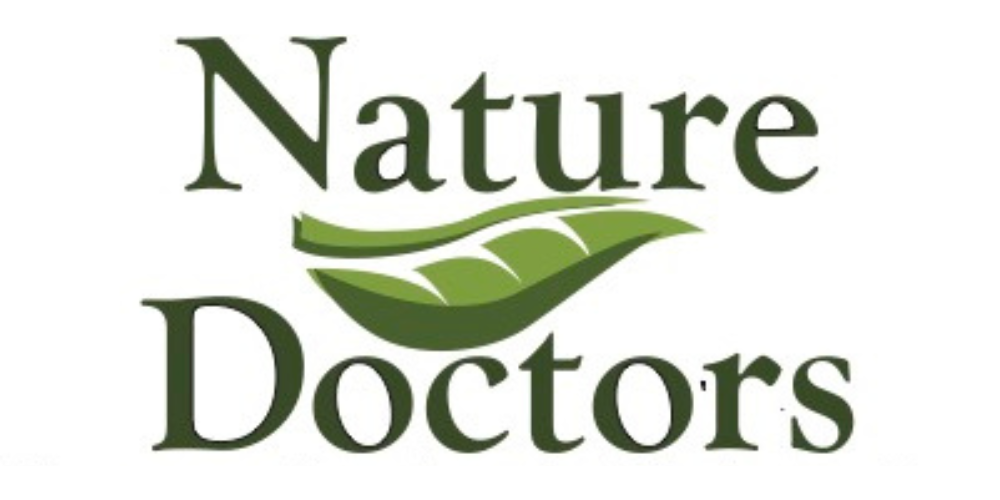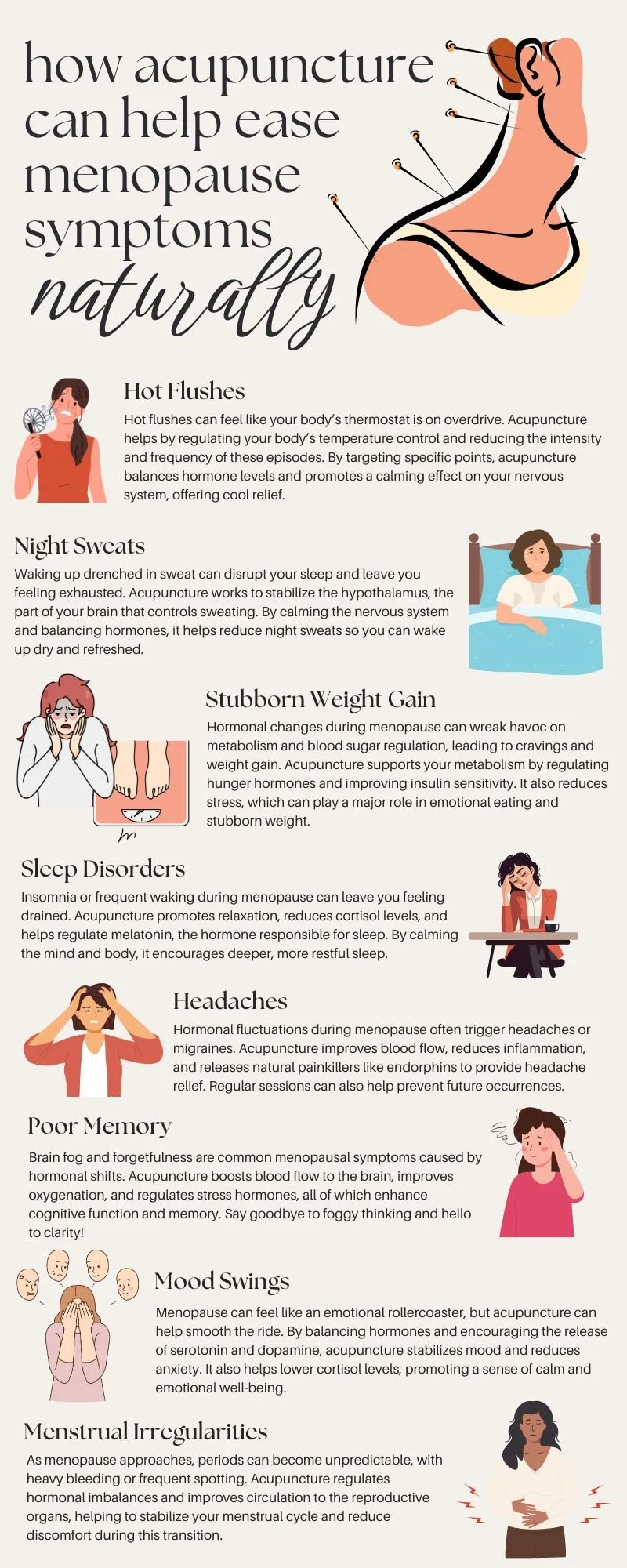Navigating Menopause: How Acupuncture Can Be Your Secret Ally
Menopause—it's the grand finale of periods and the start of a new chapter. Defined as 12 consecutive months without a period, the average age for menopause in developed countries is 51. While it’s a natural transition, the years before and after menopause can come with a rollercoaster of symptoms, ranging from mild to downright overwhelming.
But here’s the good news: acupuncture, an ancient practice with modern appeal, may be just the thing to help smooth the ride.
What Happens During Menopause?
Menopause is a deeply personal journey, influenced by factors like age, culture, health, and whether it occurs naturally or is surgically induced. Even experiences like childbirth—or the lack thereof—can shape how women navigate this phase.
Some common symptoms include:
Vasomotor symptoms (VMS): Hot flashes and night sweats
Mood disorders: Anxiety and depression
Sleep disturbances
Osteoporosis
Cognitive decline
Symptoms can last an average of seven years. (Yes, seven!) But here’s where acupuncture steps in as a natural, effective way to help.
Traditional Chinese Medicine (TCM) and Menopause
In Traditional Chinese Medicine (TCM), menopause is viewed as a natural transition involving imbalances in yin, yang, qi, and blood. While kidney deficiency is often considered the primary factor, this transition can also impact the heart, liver, and spleen, leading to a variety of symptoms. These imbalances may manifest as hot flashes, mood swings, fatigue, insomnia, and other discomforts, depending on which organs are most affected.
By addressing these imbalances, acupuncture and TCM aim to restore harmony within the body, easing the transition through menopause in a holistic and individualized manner.
Acupuncture for Vasomotor Symptoms
VMS, like hot flashes and night sweats, affect 70% of women in Western cultures. Research shows acupuncture can significantly reduce the frequency and severity of these symptoms, with effects lasting up to six months.
The Science Says:
A 2015 meta-analysis of 12 studies found that acupuncture not only eased VMS but also improved menopause-related psychological and physical symptoms.
In short, acupuncture could be the cool breeze you need during those hot flash moments!
Mood Boosting with Acupuncture
Feeling moody or anxious? You’re not alone. Menopause-related hormonal changes can wreak havoc on your emotional well-being.
The Research:
A 2013 review found acupuncture promising for treating depression in menopausal women.
A 2007 review on acupuncture for anxiety reported positive outcomes across multiple trials.
Acupuncture’s ability to influence cortisol and beta-endorphin levels helps stabilize your mood, making it a calming ally during menopause.
Better Sleep Through Acupuncture
Insomnia and sleep disturbances are another common struggle. Acupuncture’s ability to regulate hormones and calm the nervous system has shown to improve sleep quality.
The Data:
A 2015 review found that 75% of studies reported significant improvements in sleep complaints following acupuncture treatments.
Stronger Bones, Happier Joints
Post-menopausal osteoporosis can be a real concern as estrogen levels drop. Acupuncture may help protect your bones and reduce pain.
The Stats:
A 2018 meta-analysis found acupuncture increased bone mineral density (BMD) and improved serum calcium and estradiol levels.
It also helps regulate the OPG/RANK/RANKL signaling pathways, crucial for protecting bone tissue.
Brain Health and Cognitive Function
The risk of cognitive decline, including Alzheimer’s disease, rises post-menopause. But acupuncture may offer some neuroprotective benefits.
What Studies Show:
Acupuncture improves brain activity in areas related to cognition, memory, and motor function.
It positively impacts Mini Mental State Examination scores, which assess cognitive health.
How Acupuncture Works
Acupuncture works through several physiological mechanisms:
Purinergic signaling: Uses ATP for neurotransmission, helping regulate mood, metabolism, and bone density.
Hormone regulation: Balances cortisol and DHEA levels to address mood swings, weight gain, and bone health.
Anti-inflammatory effects: Eases joint pain and protects against osteoporosis.
Brain activation: MRI studies show acupuncture stimulates brain regions tied to memory and focus.
The Mainstream Shift in Menopause Care
Menopause is no longer a hushed topic. With growing awareness, women are advocating for better care and exploring integrative therapies like acupuncture.
Acupuncture offers a personalized, holistic approach to managing menopause, addressing symptoms from hot flashes to cognitive health.
The Bottom Line
Menopause may be a natural milestone, but that doesn’t mean you have to suffer through its challenges. Acupuncture provides a safe, effective way to reclaim your balance and embrace this phase with confidence.
Whether you’re sweating through hot flashes, struggling to sleep, or simply looking for natural ways to support your body, acupuncture might just become your new best friend.


